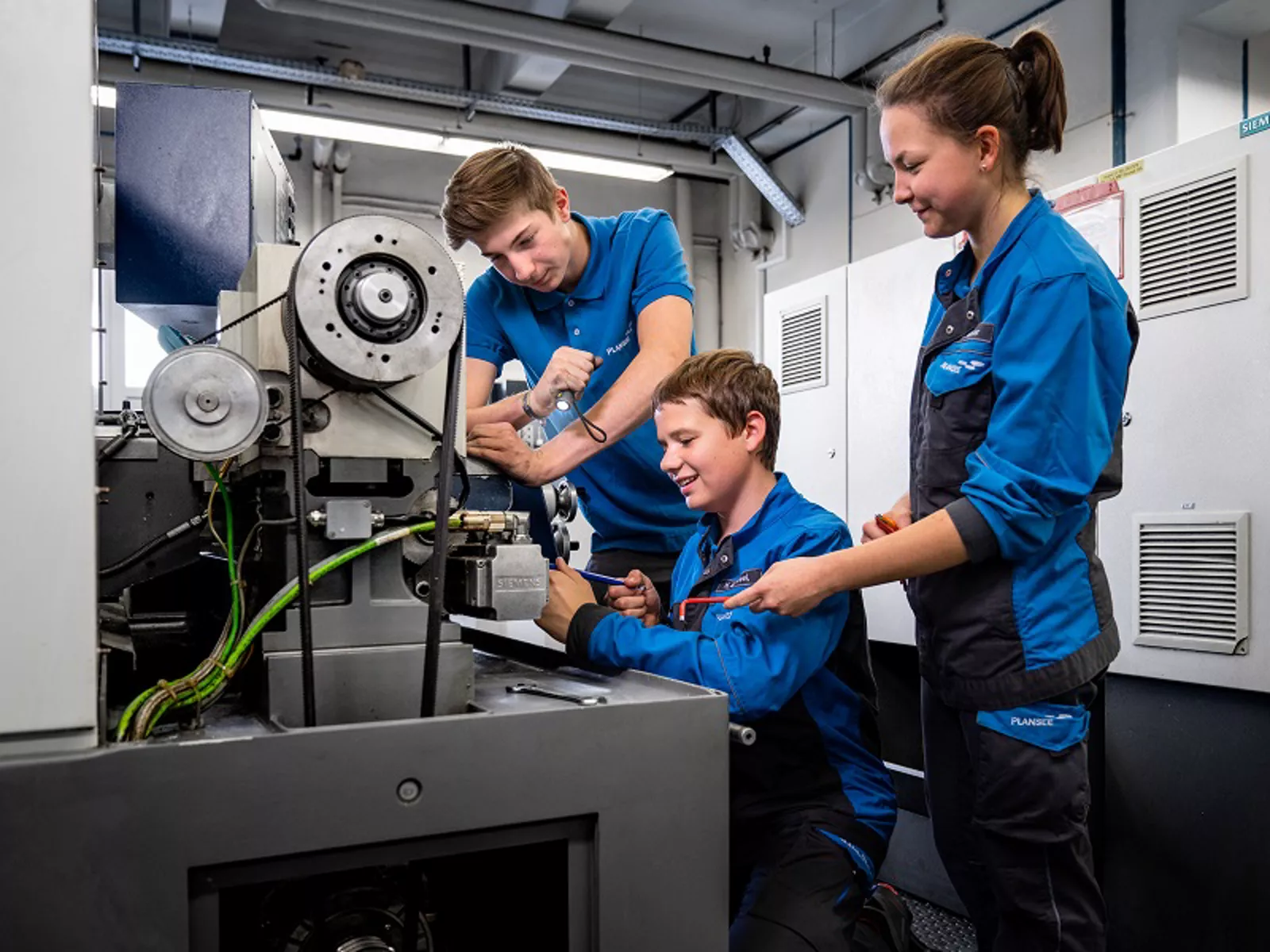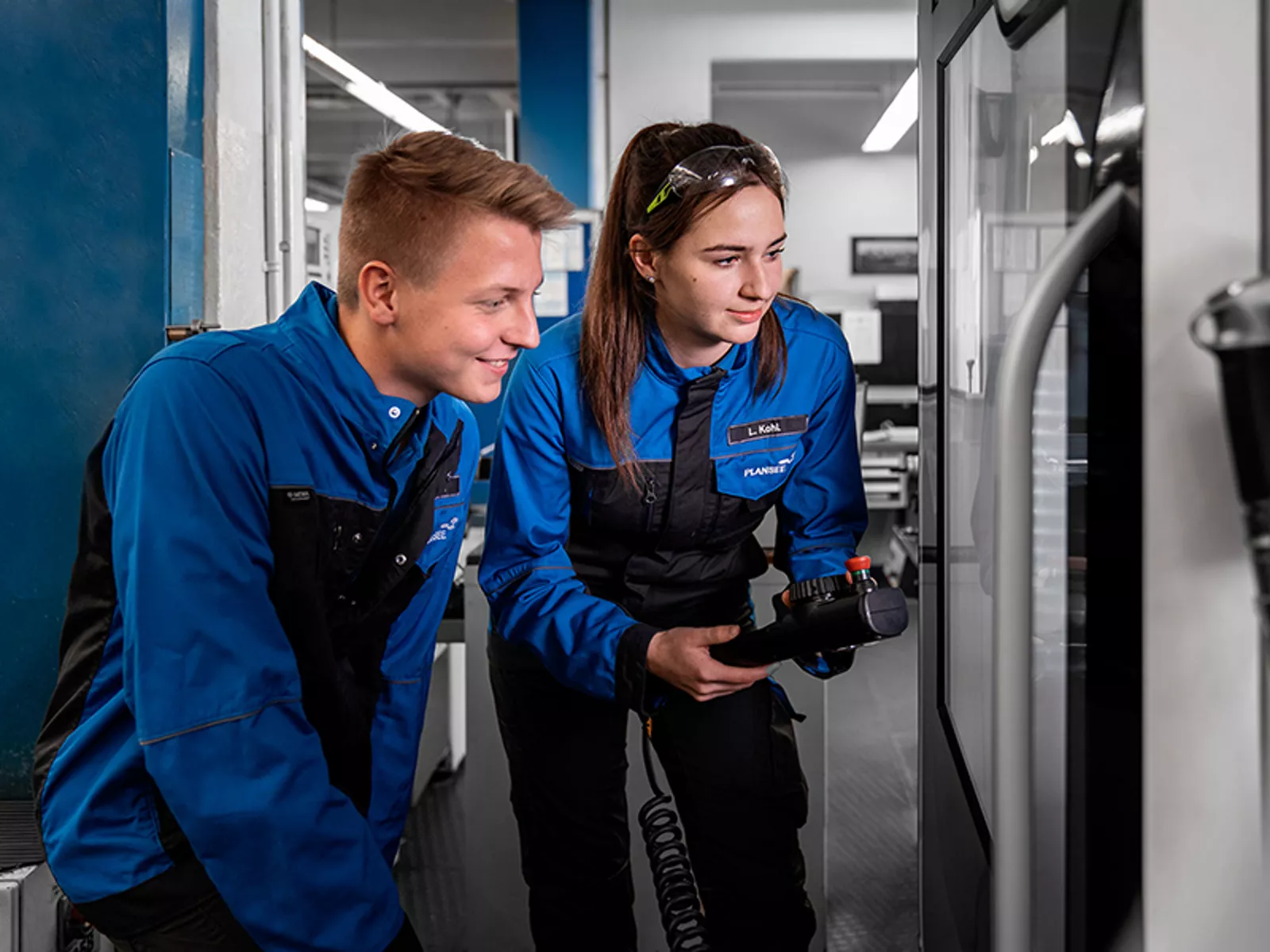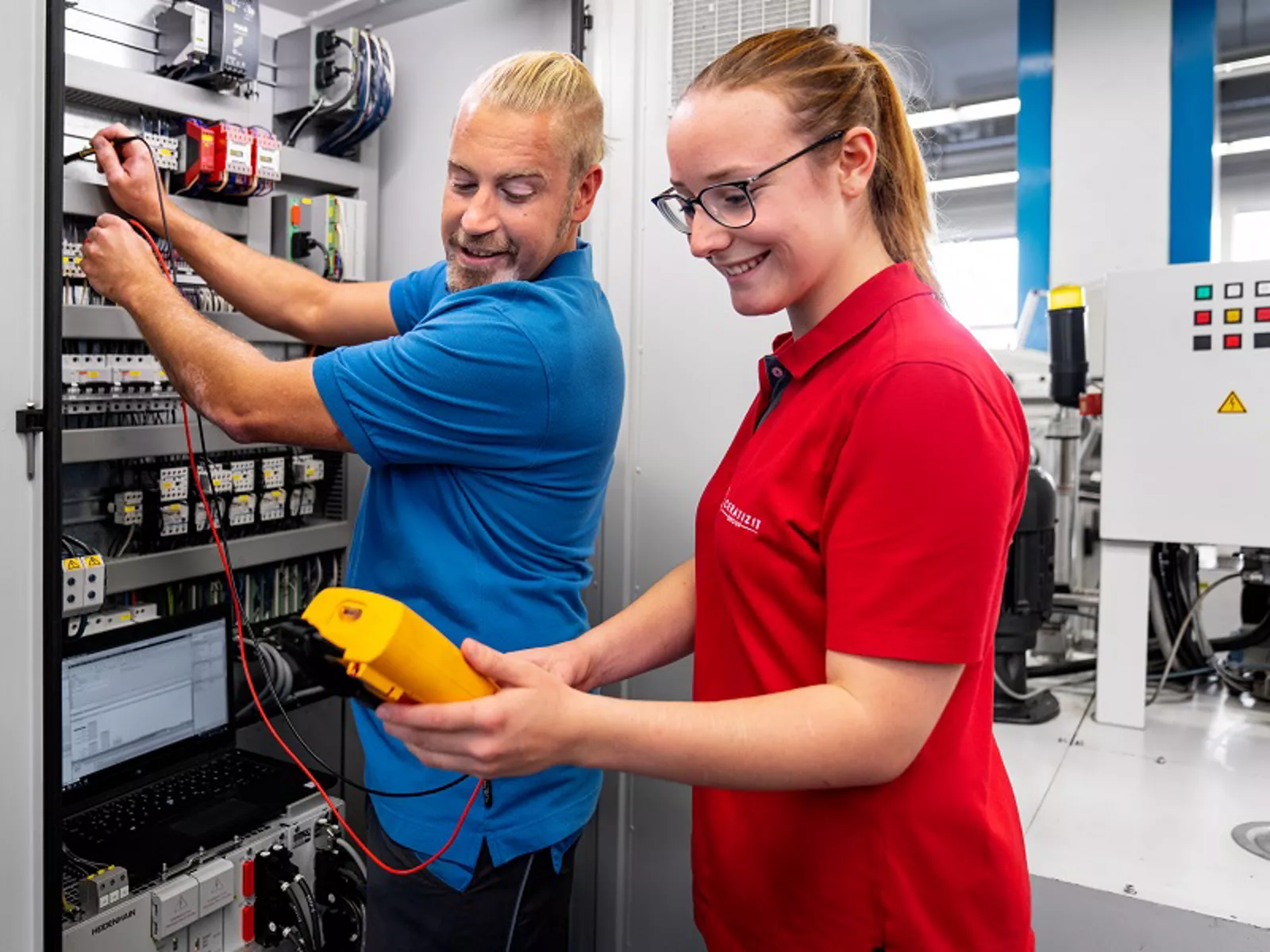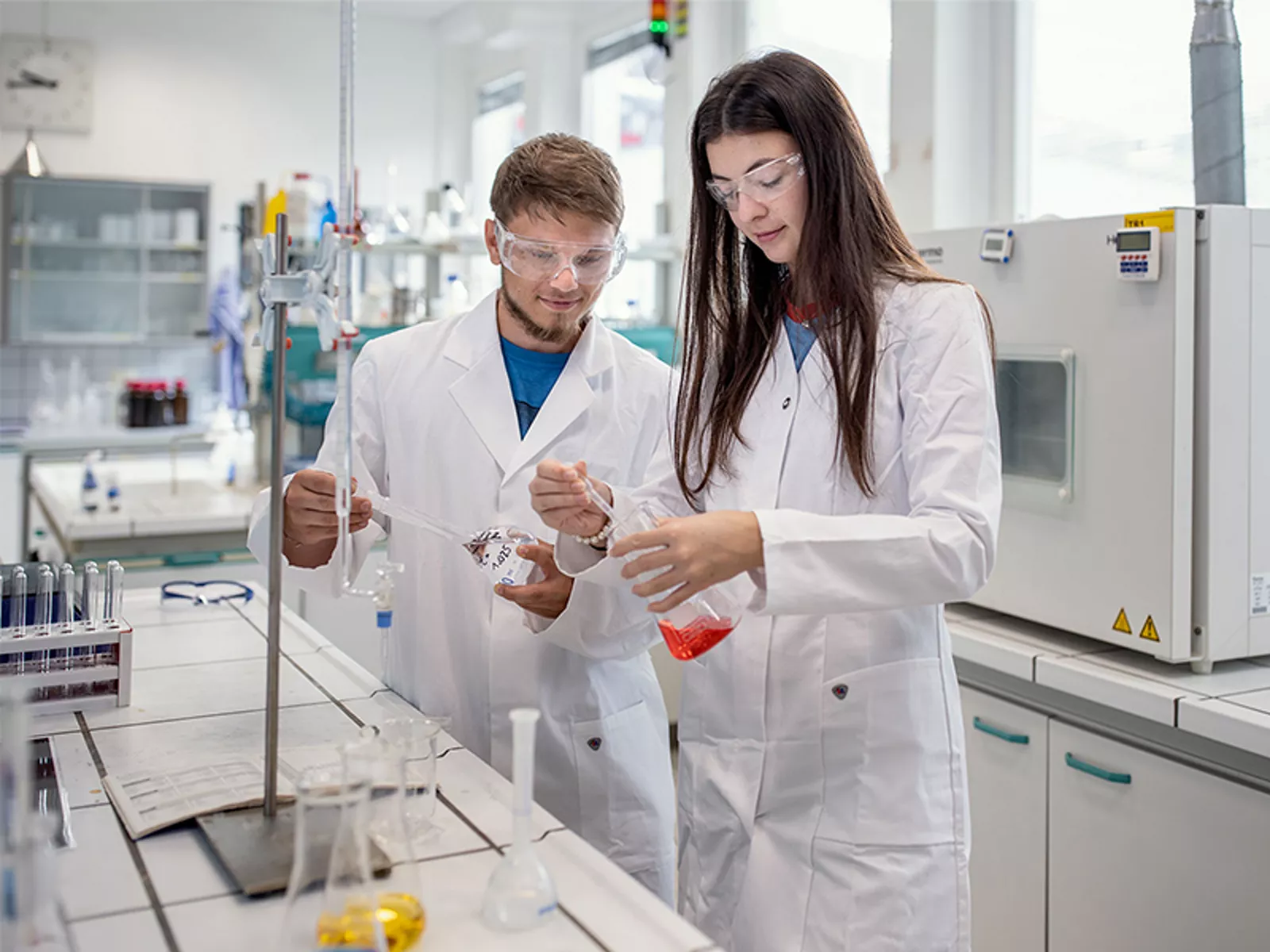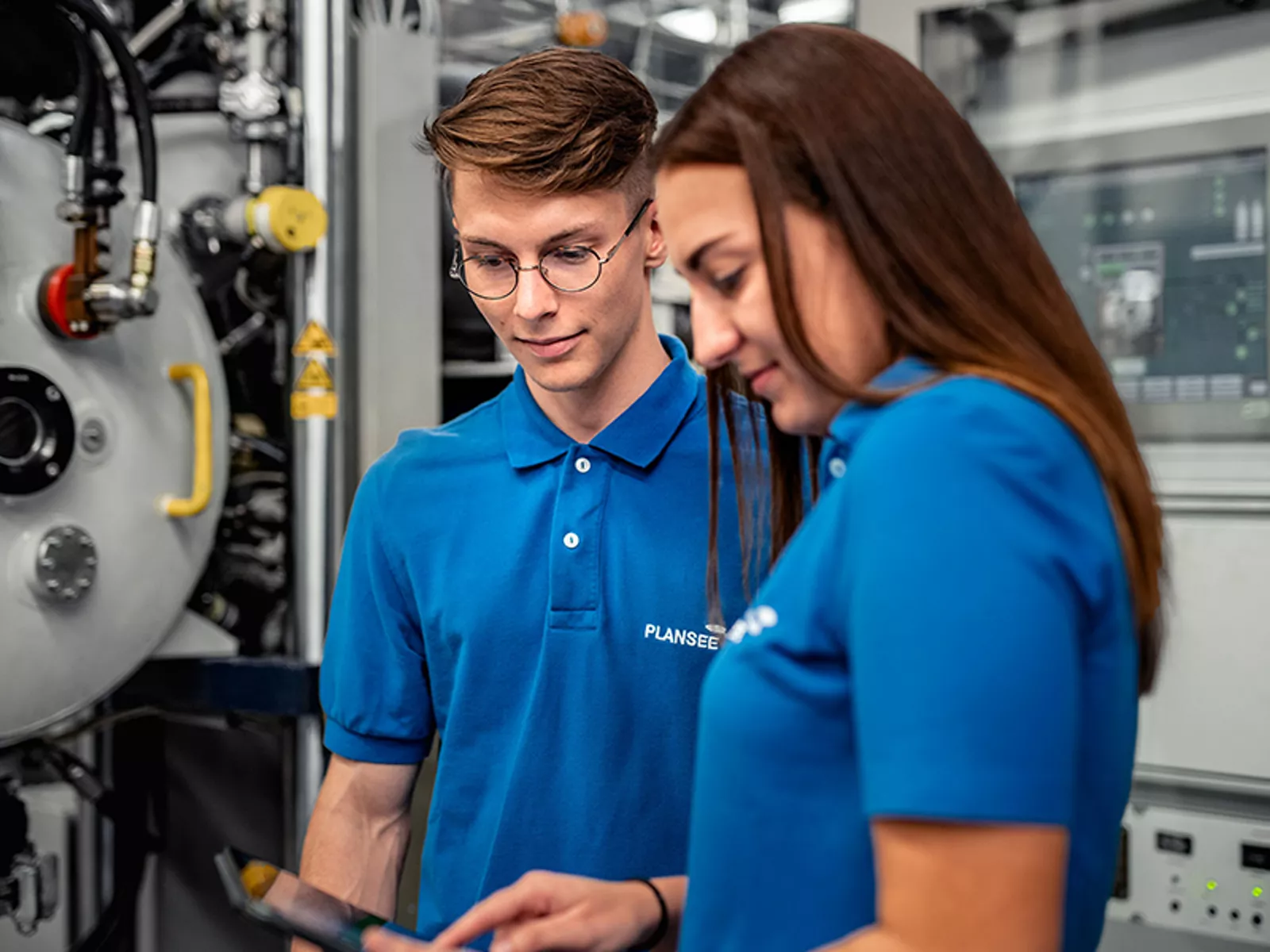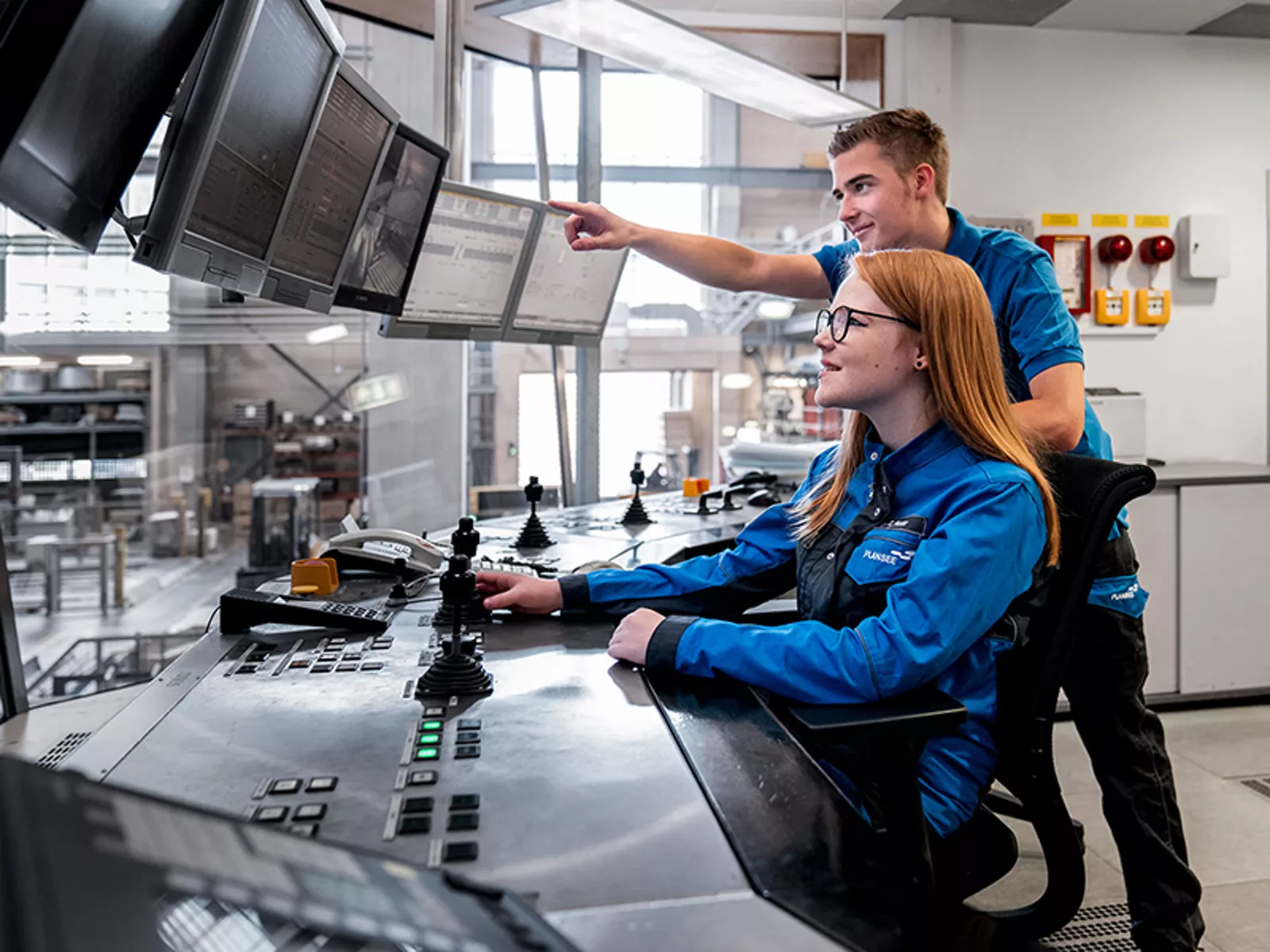Our outstanding vocational training speaks for itself - many of our managers started their careers with an apprenticeship at the Plansee Group.

Strong metals. Strong training.
Starting your career at Plansee definitely makes a lot of sense. This is because we place great value on broad-based vocational training and we will also set you up for future opportunities with our interesting development opportunities in Reutte and the rest of the world.
There are currently 125 young people learning from the ground up about our company, our products and processes at our state-of-the-art training center.
Would you also like to start your future in a strong team?
Then apply now for a vocational training position at the Reutte site. We look forward to hearing from you!
APPLY NOW!Our passionate, skilled trainers as well as the other apprentices look forward to seeing you at our sites in Reutte, Lechbruck and Seon.
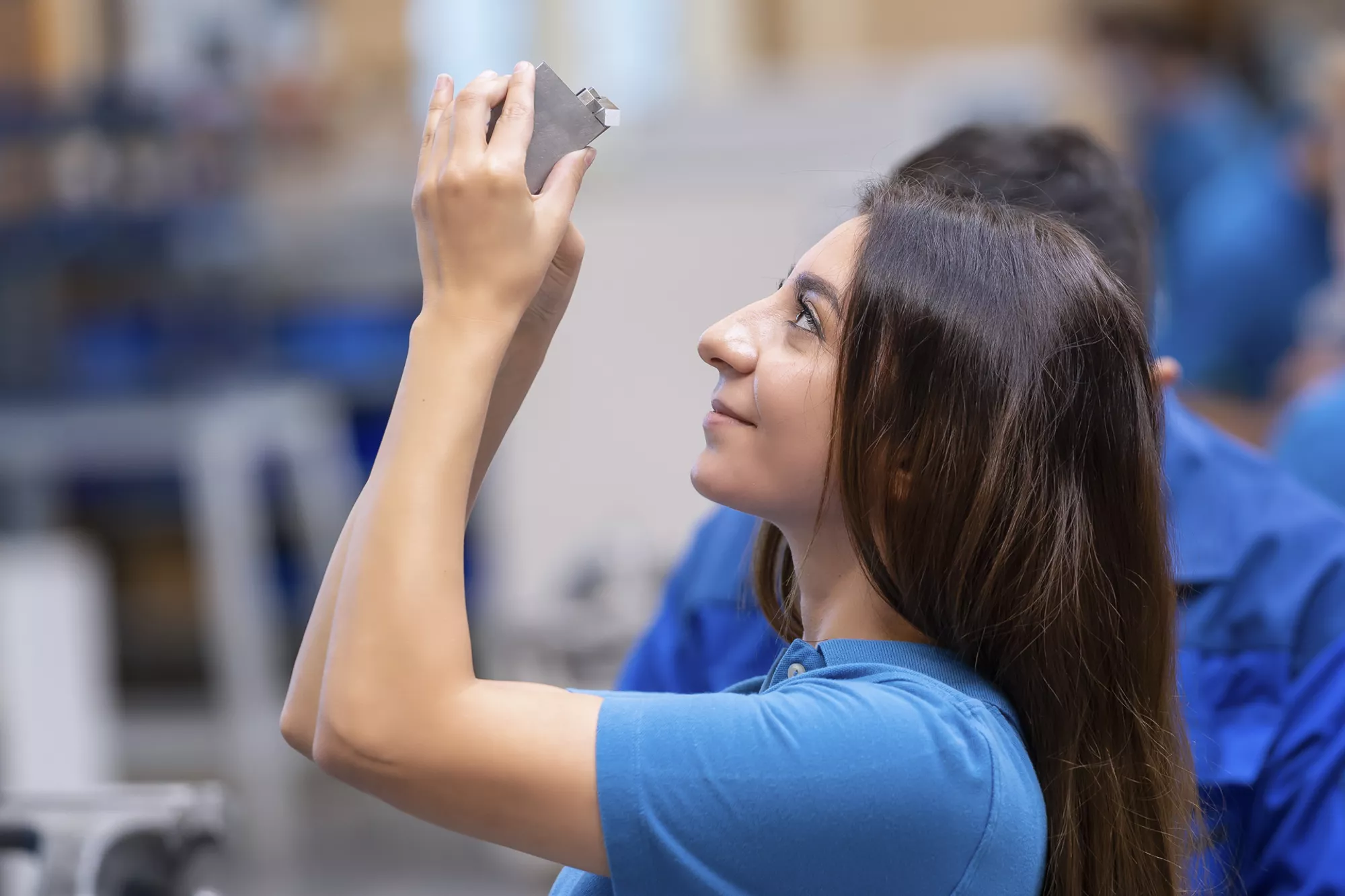
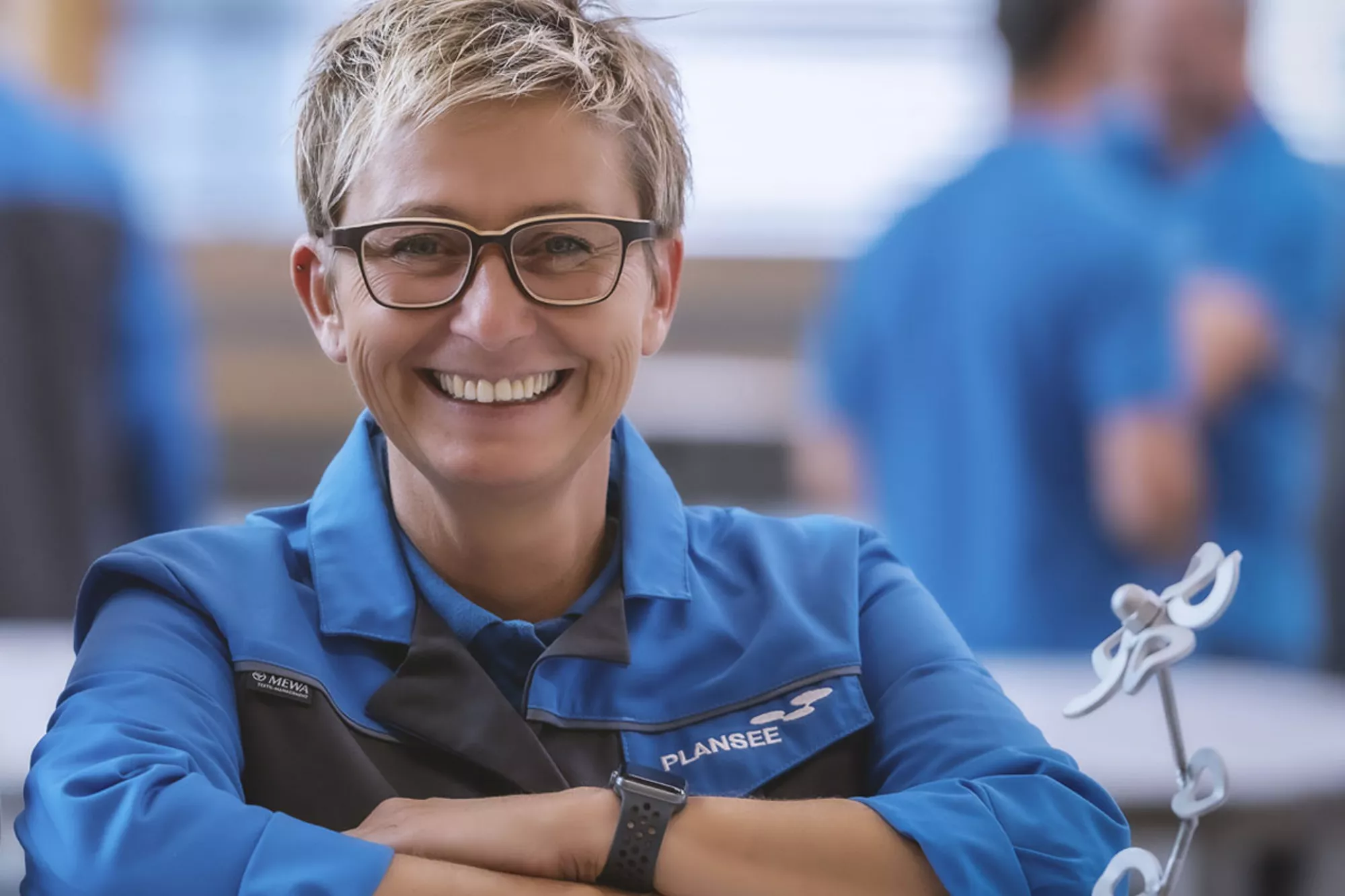
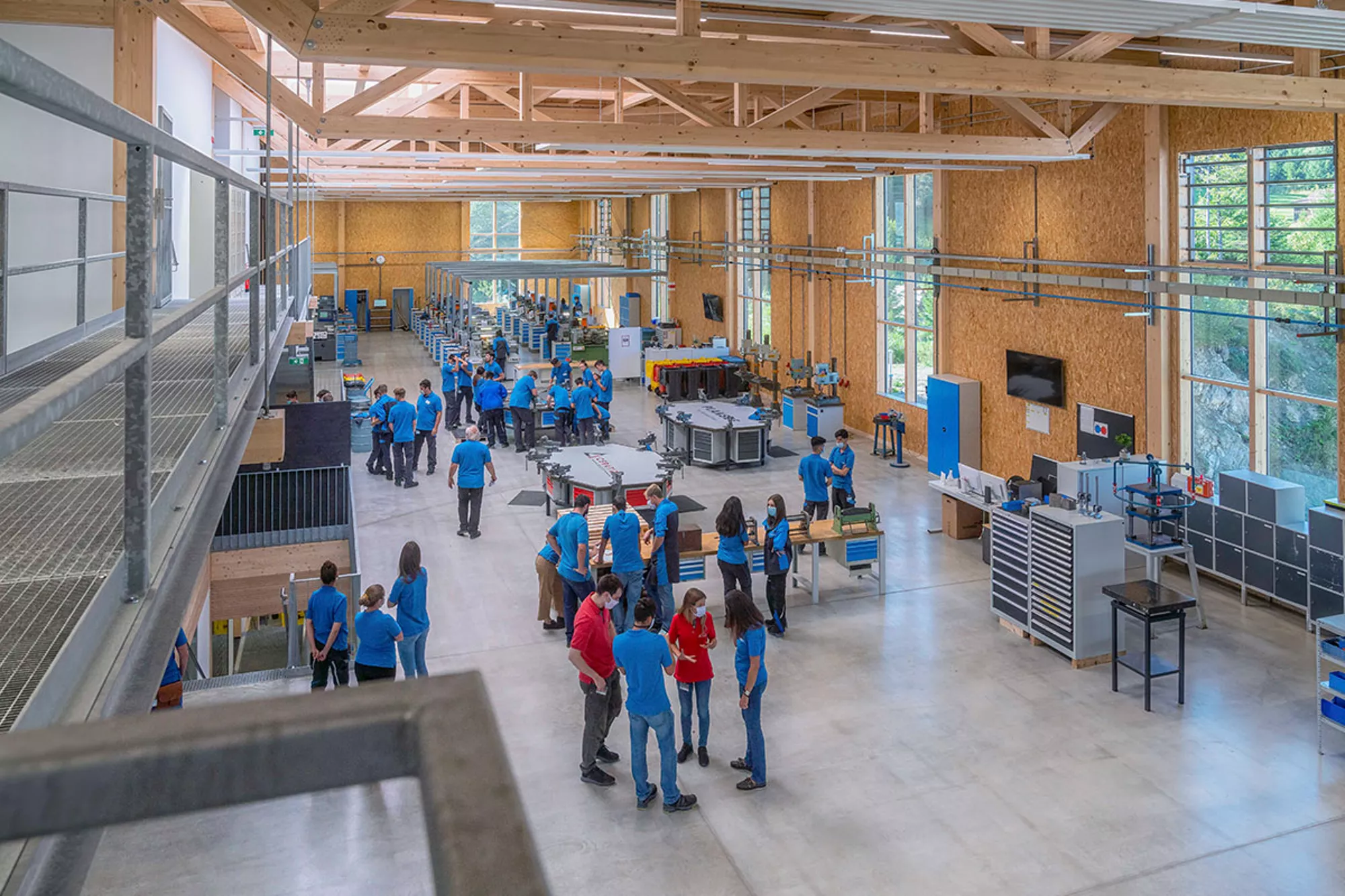
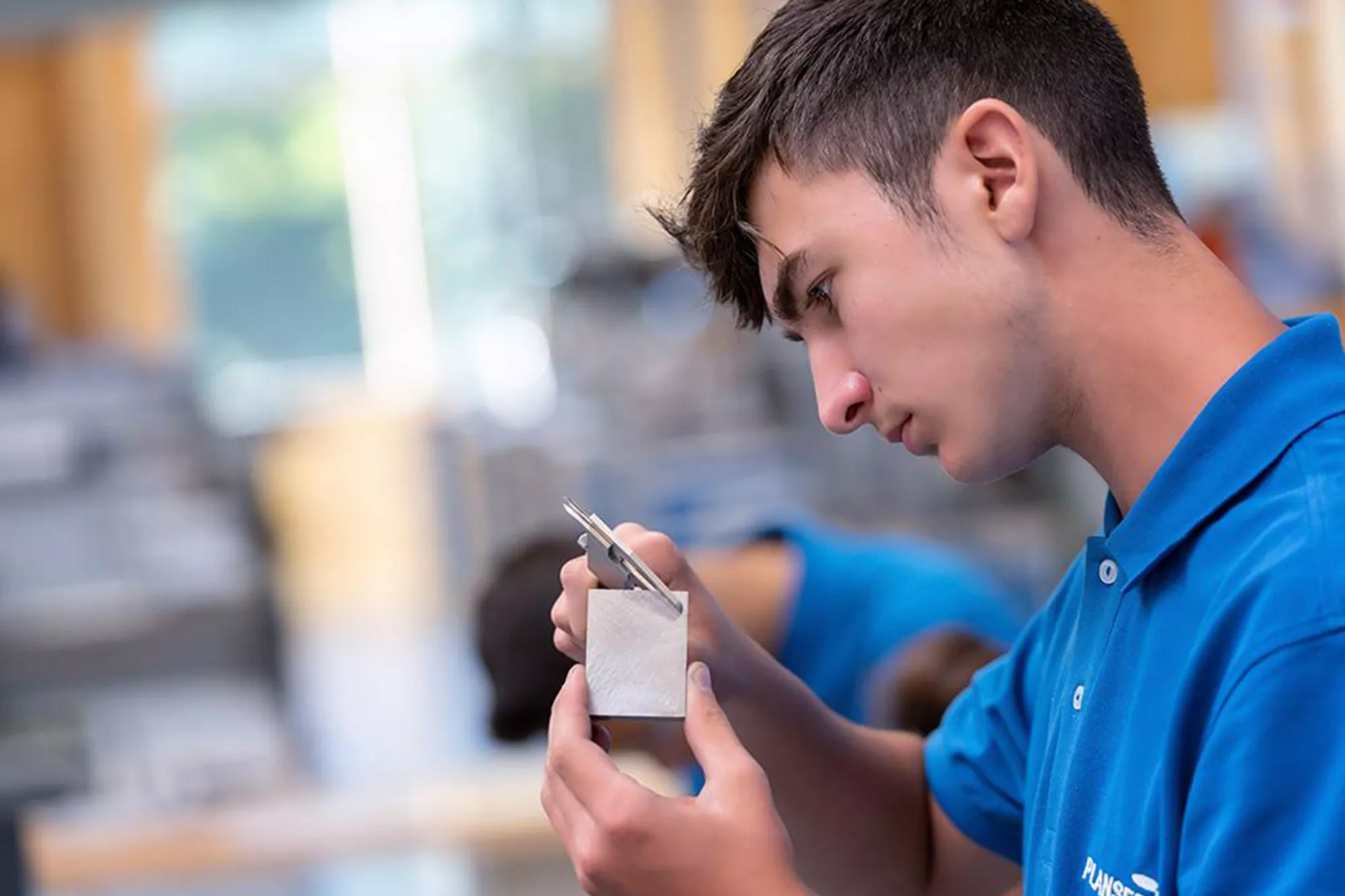
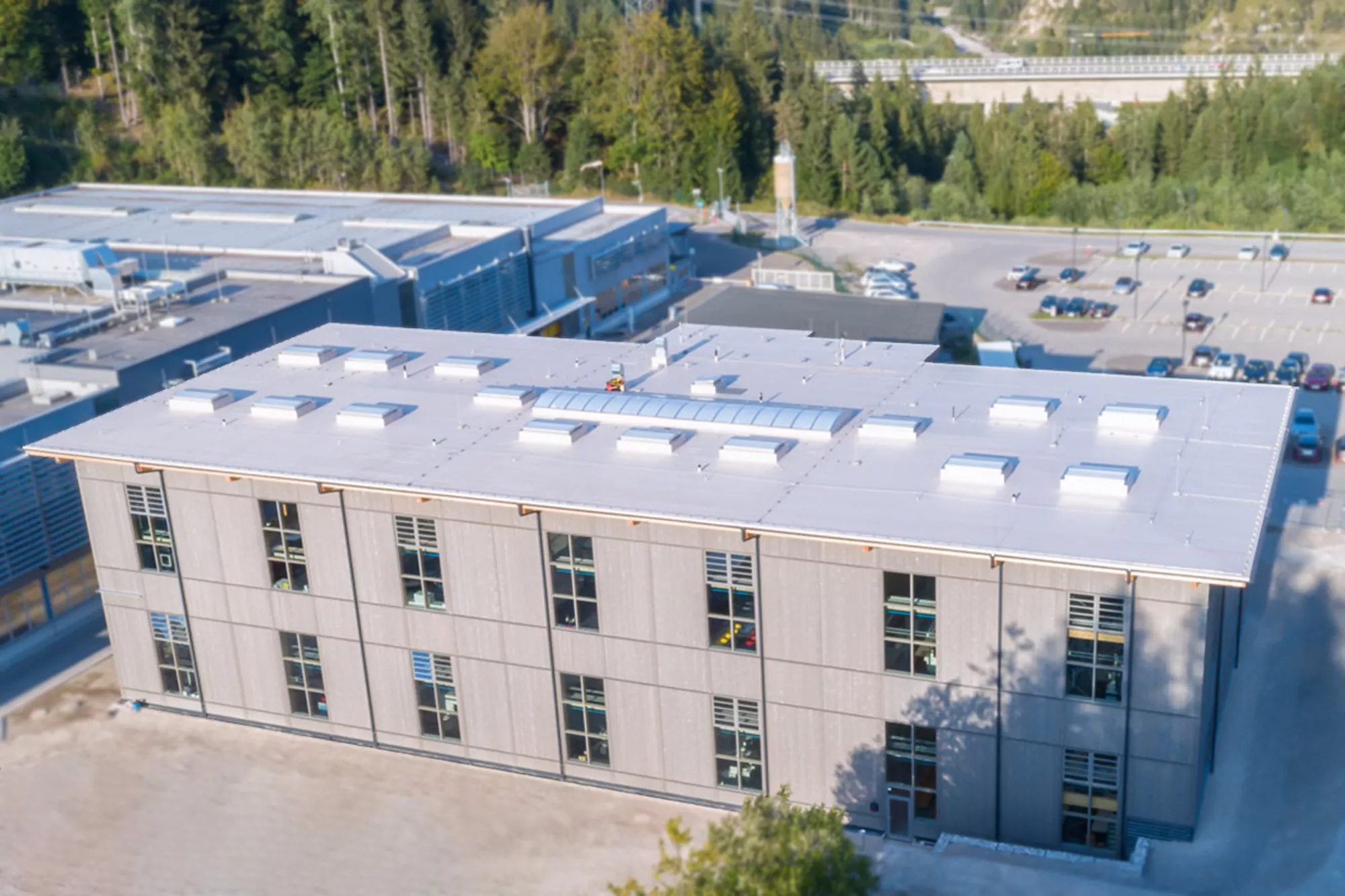
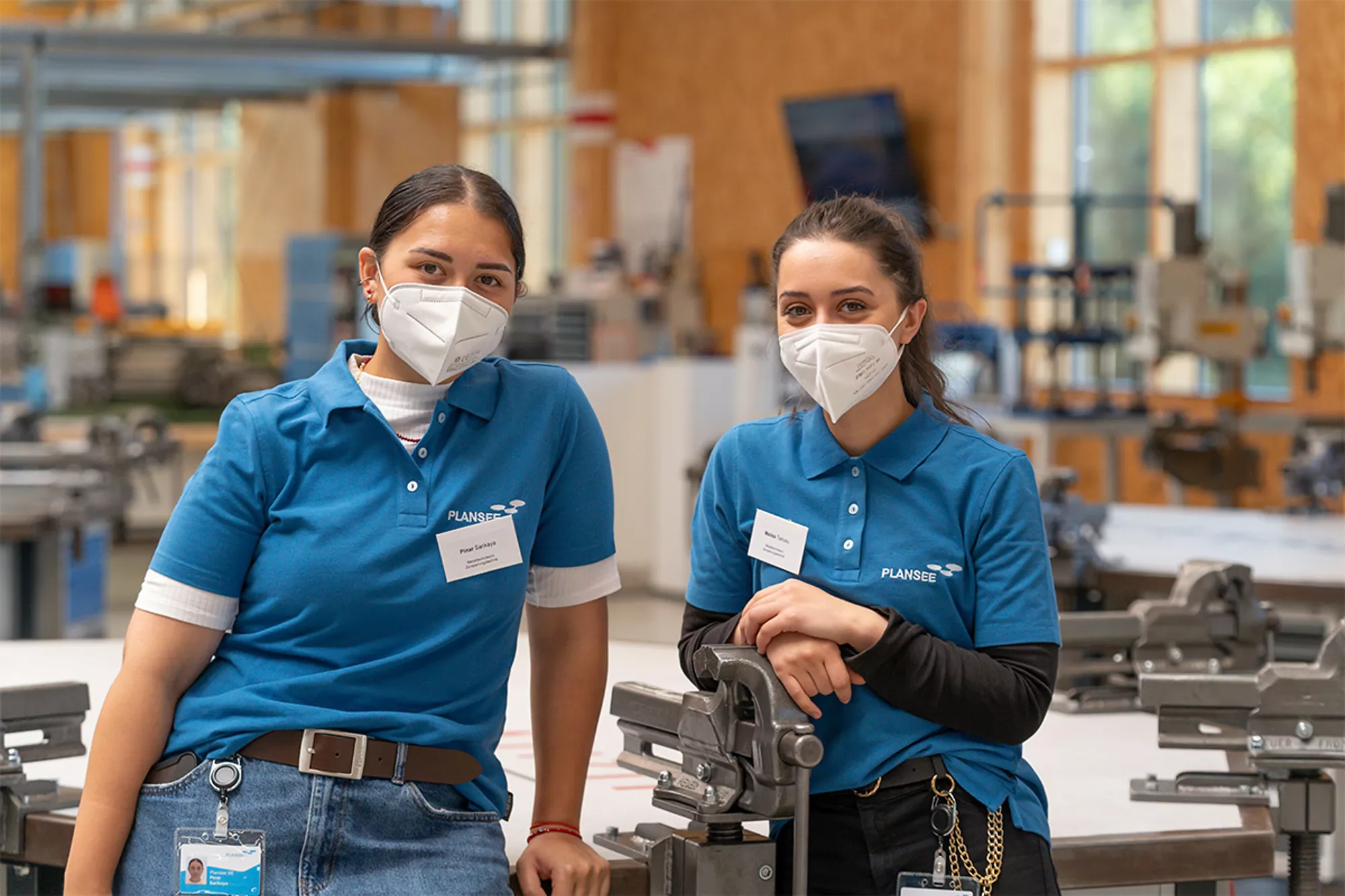
- slideplansee-aem/components/imageSlide67102185
- slideplansee-aem/components/imageSlide67102187
- slideplansee-aem/components/imageSlide67102189
- slideplansee-aem/components/imageSlide67102191
- slideplansee-aem/components/imageSlide67102193
- slideplansee-aem/components/imageSlide67102195
Apprenticeships at the Reutte site
- Metal technician - main module on mechanical engineering
Duration of apprenticeship
3 1/2 years
Vocational school
FBS Plansee (by the day)
Job description
The tasks performed by metal technicians in mechanical engineering include the planning and design, assembly, installation, commissioning, and maintenance and repair of
machines, machine components, and systems. Alongside manufacturing and assembling machine components, metal technicians have the key task of ensuring machines and systems (e.g., production facilities, conveyor belts, packaging machines, etc.) operate flawlessly as far as possible, as downtimes due to defects result in extremely high costs.
In the event of breakdowns, you will use measuring devices to systematically pinpoint faults, disassemble the faulty components, replace defective parts, and even make replacement parts yourself. You will use metal-machining processes such as milling, screwing, drilling, turning, thread cutting, welding, and soldering in your work. In addition, you will make housing and body components from sheet metal or aluminum.
The most important tasks at a glance:
- Assembling, installing, testing, and commissioning machines and systems
- Assembling and connecting pneumatic and hydraulic components
- Assembling and testing electronic components (e.g., control systems)
- Making replacement parts and components while taking into account technical standards
- Using metal-machining processes such as drilling, turning, milling, grinding, etc.
- Using a variety of welding techniques such as gas welding, arc welding, and gas shielded arc welding
- Programming and operating computer-assisted (CNC) machine tools
- Installing spare parts and machine components, setting functions
- Performing test runs
- Troubleshooting, pinpointing, and eliminating errors, defects, and faults on machines and systems
- Adhering to safety rules and quality standards
- Performing regular maintenance and servicing work on machines and production systems
- Updating log books, technical documents, assembly plans, operating manuals, maintenance and servicing records
- Metal technician - main module on machining technology
Duration of apprenticeship
3 1/2 years
Vocational school
FBS Plansee (by the day)
Job description
Metal technicians in machining technology work on planning, manufacturing, and machining workpieces using metal-cutting processes (e.g., drilling, milling,
turning, filing, grinding). Their products include components and machine parts such as axles, shafts, bearings, bolts, chocks, gears, and washers. They plan the work steps, select the required materials and standard parts, and manufacture the workpieces in accordance with technical plans and specifications. While doing so they use conventional machine tools (e.g., turning, boring, and grinding machines) or computer-controlled (CNC) systems. Metal technicians in this field also carry out manual finishing work on materials, such as filing, sawing, polishing, or thread cutting.
Metal technicians set the machine tools and manufacturing equipment, check their functions, and perform simple maintenance and repair work. If machines break down, they will systematically pinpoint faults and replace defective parts.
The most important tasks at a glance:
- Manufacturing and machining simple and complex parts using metal-cutting manufacturing techniques
- Using metal-cutting manufacturing processes on conventional machines, e.g., filing, sawing, milling, turning, polishing, drilling, countersinking, reaming, thread cutting
- Using metal-cutting manufacturing processes on computer-controlled (CNC) machines, e.g., drilling, countersinking, reaming, thread cutting, milling, turning, grinding
- Using eroding manufacturing processes, e.g., spark erosion
- Using forming manufacturing processes, e.g., bending, molding, press forging, drawing
- Using cutting manufacturing processes, e.g., punching, severing, cropping, notching
- Creating, programming, and modifying simple programs for computer-assisted (CNC) machine tools and manufacturing equipment
- Carrying out computer-aided design (CAD) in manufacturing programs
- Setting up, commissioning, cleaning, and maintaining machine tools and manufacturing equipment
- Inspecting, cleaning, and polishing finished workpieces
- Updating technical documents and documentation
- Electrical engineer - main module operations and facility technology
Duration of apprenticeship
3 1/2 - 4 years
Vocational school
In blocks at the Tyrol Vocational School for Electrical Engineering, Communication, and Electronics (Tiroler Fachberufsschule für Elektrotechnik, Kommunikation und Elektronik) in Innsbruck. A total of 9 1/3 weeks per apprenticeship year is spent at the vocational school.
Job description
Electrical engineers in the field of systems and
To "Electrical engineering job profile" PDF fileindustrial engineering plan, assemble, install, maintain, and repair electrical and electronic parts, components, and systems. These include control and regulation systems; alarm systems; monitoring systems; electric doors, gates, and lifts; industrial machinery and plant; refrigeration and air-conditioning equipment; and power supply facilities.
You will assemble operational and system parts and components and carry out all preliminary work up to commissioning. You will also maintain and repair the electronic systems, troubleshoot and pinpoint errors, and eliminate faults.
As an electrical engineer in the field of systems and industrial engineering you are also involved in the development and planning of electronic components and systems, you draw up circuit diagrams and build and test prototypes of electrical circuits. Your tasks also often include operating and monitoring automated production plant as well as adjusting and calibrating measuring and control devices.
Setting up safety measures to prevent physical injury and material damage as well as detecting errors, defects, and faults through systematic troubleshooting and pinpointing, eliminating, and documenting them are other vital areas of your job. Electrical engineers therefore play a leading role in ensuring safety within companies.
The most important tasks at a glance:
- Assembling, installing, setting up, commissioning, maintaining, and repairing electronic systems, particularly in the field of systems and industrial engineering
- Setting up, assembling, installing, testing, commissioning, and performing maintenance work on intercom, fire alarm, and alarm systems as well as lightning protection equipment and grounding systems
- Setting up, testing, and connecting electrical equipment and control systems
- Reading circuit diagrams and assembly plans, and sometimes drawing up these plans
- Creating material lists, preparing resources such as cables, wires, terminals, switches, etc.
- Making special parts using methods like filing, sawing, drilling, soldering, welding, etc.
- Measuring, routing, and connecting cables and wires
- Assembling and setting (computer-controlled or sensor-controlled) monitoring and control devices
- Connecting electronic, electrical, pneumatic, and hydraulic control systems
- Installing safety measures such as electrical circuit breakers, grounding equipment, automated device and machine shutdown equipment
- Installing and setting switch boxes with fuses
- Operating measuring and test equipment
- Troubleshooting, pinpointing, and eliminating errors, defects, and faults on components, devices, and systems
- Assembly, testing, commissioning, control, maintenance, and repair
- Laboratory technician - main module chemistry
Duration of apprenticeship
3 1/2 years
Vocational school
By the day at the Tyrol Vocational School for Nutrition, Beauty, Chemistry, Media (Tiroler Fachberufsschule für Ernährung, Schönheit, Chemie, Medien) – St. Nikolaus in Innsbruck.
Job description
Chemistry laboratory technicians perform chemical and physico-chemical studies and experiments
on materials and substances such as plastics, composites, building materials, foodstuffs, metals, liquids, acids, and gases. They work in either the analytical or synthetic field. In analytical chemistry they focus on determining the substances, properties, and key data and obtaining samples. Synthetic chemistry involves developing and manufacturing new chemical substances and products.
They use computer-controlled laboratory equipment and microscopes to examine the chemical composition and chemical properties of materials and samples, such as their pH value, temperature, and density. In doing so, they draw on different chemical analysis procedures and methods. They create simple experiment drawings, prepare the samples, and set up the required apparatus and laboratory equipment. They clean and concentrate different substances and materials, e.g., using distilling, extracting, or vaporization processes, and analyze the chemical characteristic data and measuring results obtained, record and document your results, and draw up statistical and graphical analyses. Once the experiments and analyses are complete, they clean the equipment they have used and ensure the materials and samples are stored or disposed of properly.
Chemistry laboratory technicians read and understand the analysis and procedural rules and safety data sheets. During all their tasks they ensure that all quality, safety, and environmental standards are met and that samples are not contaminated by foreign bodies. When working with automated laboratory systems, they install and configure programs, monitor the automated processes, and pinpoint and eliminate faults.
The most important tasks at a glance:
- Reading and applying technical documents, analysis rules, formulas, procedure instructions, specifications, diagrams, etc., and drawing up simple experiment diagrams
- Taking and preparing samples
- Separating and cleaning specimens
- Operating and monitoring simple measuring and control systems
- Setting up, adjusting, and operating laboratory equipment, test and experiment apparatus
- Performing separation processes on solid-liquid mixtures such as decantation, sedimentation, filtration, centrifugation, and evaporation
- Performing cleaning and concentration procedures, e.g., distillation, extraction, vaporization, crystallization, adsorption, and absorption
- Carrying out and monitoring chemical and physical measurements and experiments
- Determining measured variables and parameters, e.g., temperature, density, pH values, viscosity, index of refraction, flash point, melting point, conductivity
- Applying volumetric and gravimetric methods
- Applying instrumental methods, e.g., photometry, chromatography, and potentiometry
- Applying electroanalytical methods, e.g., electrogravimetry, electrophoresis, etc.
- Cleaning, maintaining, and disinfecting laboratory equipment, test and experiment apparatus
- Calibrating equipment (= calibrating measuring instruments, setting to a precise measurement)
- Using chemicals safely, being familiar with and complying with hygiene and safety rules
- Materials engineer
Duration of apprenticeship
3 years
Vocational school
FBS Plansee (by the day)
Job description
Materials testers perform mechanical, chemical, and physical tests and inspections on materials such as iron, steel, aluminum, and plastic. Together with specialists (e.g., physicists,
chemists, or materials engineers), they design experiments and perform certain tests and investigations. They examine the hardness, density, load-bearing capacity, elasticity, heat resistance, and compressive strength of materials. Different test procedures are used depending on the purpose of the experiment and the material. In "destructive test procedures", the materials tester subjects the material to different tensile, stretch, pressure, and pull tests. Tests like a bend test are carried out on brittle materials (e.g., gray cast iron). During this test they load the test piece until it breaks, allowing them to calculate the bending strength based on the data acquired.
In "non-destructive (metallographic) test procedures", the inner structure of metals and alloys is examined. Microscopes, X-rays, or ultrasound are used to find potential defects (e.g., internal cracks, scratches, fractures, or cavities) in the materials. There are also other types of test procedures such as magnetic, chemical, and inductive tests.
Materials testers document the measured values in records or present the results of their tests in table or graph form. They analyze the data with their colleagues and determine the possible applications for the materials they have tested. The results of the materials tests form the basis for certifications (issuing of test confirmations) and the improvement of material properties.
The most important tasks at a glance:
- Designing, planning, and organizing materials testing experiments
- Performing mechanical, chemical, and physical tests on metallic and non-metallic materials
- Conducting tensile, stretch, pressure, and pull tests
- Carrying out metallographic test procedures (e.g., using X-rays, ultrasound, etc.)
- Recording and analyzing the test results, and presenting the data in the form of tables, graphs, etc.
- Presenting and explaining results, determining the possible applications for the materials that have been tested
- Working on certifications (issuing a test confirmation)
- Process engineer
Duration of apprenticeship
3 1/2 years
Vocational school
FBS Plansee (by the day)
Job description
Process engineers are specialists in controlling production processes on semi-automated and fully automated production systems. You will read technical documents, such as instructions,
flowcharts, operating instructions, maintenance and repair schedules, and circuit diagrams, and will be responsible for production planning. This involves planning work steps, equipment, and processes as well as calculating the required use of operating resources for production (e.g., costs of materials; use of tools, machines, and devices). You will define the required process steps and plan the use of the manufacturing plant (which is usually fully automated). In addition, you will monitor the production system work flows during the manufacturing process.
As a process engineer you will systematically examine and analyze the production processes and document the results in order to identify weak points and develop measures to improve them. You will also optimize production processes, for example, by increasing efficiency or capacity utilization, taking into account the opportunities afforded by assistance systems like robots, VR glasses, or automated manipulation and transportation systems.
You will keep log books and records on work flows, work results, faults, and technical incidents, and ensure compliance with safety and environmental standards.
The most important tasks at a glance:
- Reading and applying technical documents, e.g., sketches, drawings, instructions, flowcharts, operating instructions, maintenance and repair schedules, and circuit diagrams
- Defining work steps, equipment, and methods
- Selecting, procuring, and inspecting required materials
- Planning the use of tools, equipment, and technical resources for (computer-assisted) manufacturing plant and equipment
- Selecting raw materials, additives, and auxiliary materials depending on operational focus, testing their suitability, and storing them properly
- Setting up, retrofitting, feeding, starting up, and operating production systems (manufacturing plant)
- Operating production systems and controlling production processes, monitoring the work flows of manufacturing plant and production systems
- Being involved in production and assembly planning
- Carrying out process monitoring, quality checks, and quality assurance measures, implementing corrective actions
- Drawing up process optimizations, sometimes using assistance systems like robots, VR glasses, or manipulation and transportation systems
- Using information technology and communications technology, and company-specific applications, e.g., ERP systems, applications for keeping shift records, fault records
- Recording, analyzing, and assessing technical data about work flows/work processes and the outcome of the work
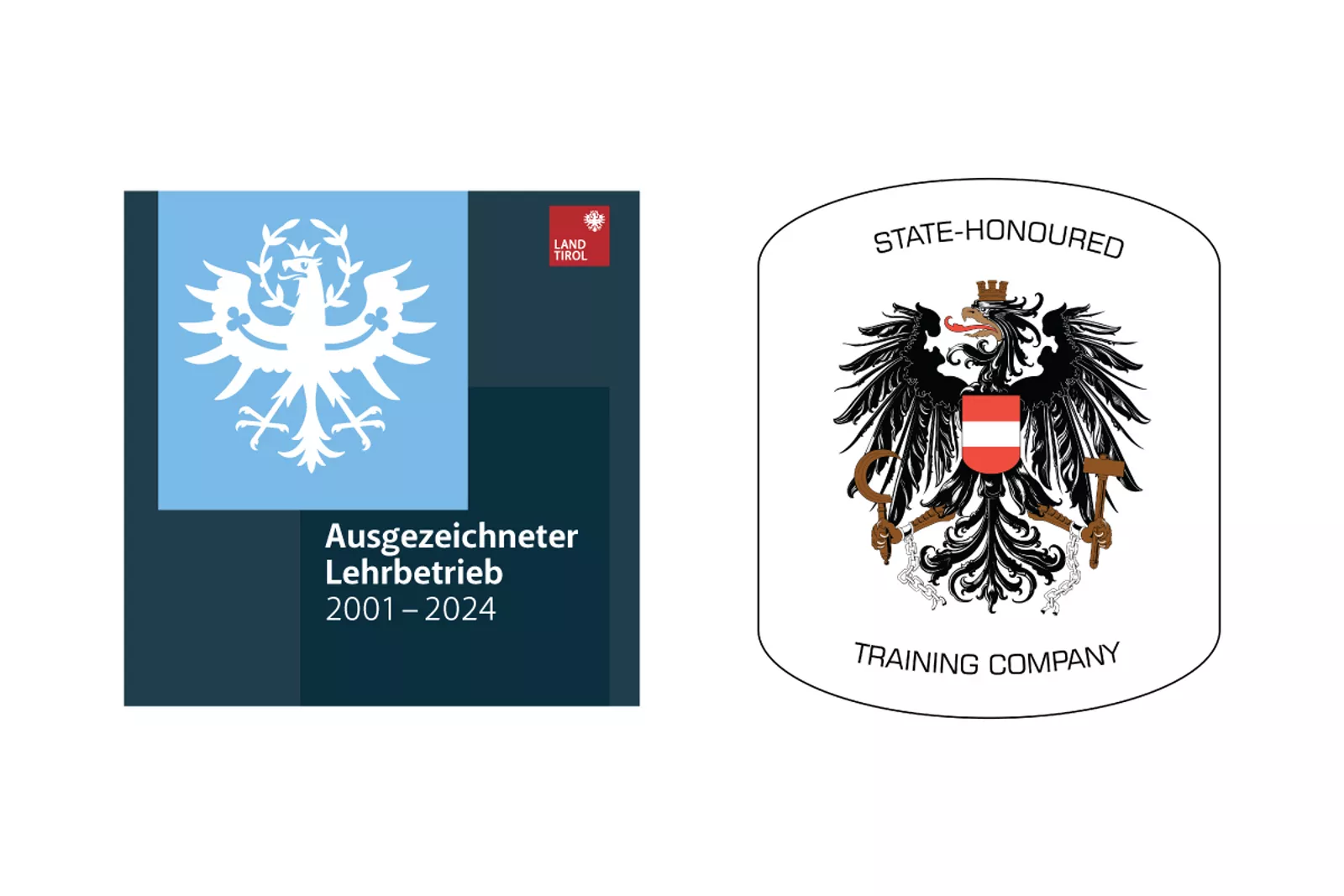
We have been honored by the state of Tirol for the high quality of our dual apprenticeship program. This honor is awarded jointly by the Chamber of Commerce and the Chamber of Labor.
More info about the award:
Apprenticeships at the Lechbruck and Seon sites
Please apply through our online application portal for the desired apprenticeship.
We require the following documentation to complete your application:
- Letter of application
- CV
- Certificates and school information for the last two mandatory school years
- All other certificates and qualifications that have been acquired to apply for an apprenticeship
What is important to us when it comes to your application:
It is important for us that your application documentation gives us a good impression of who you are as a person. Make sure that your documents are as complete as possible!
If you should receive a further certificate after submitting your documentation, simply submit this to us via our online application portal.
If you have any questions regarding vocational training or the application process, please feel free to contact us.


